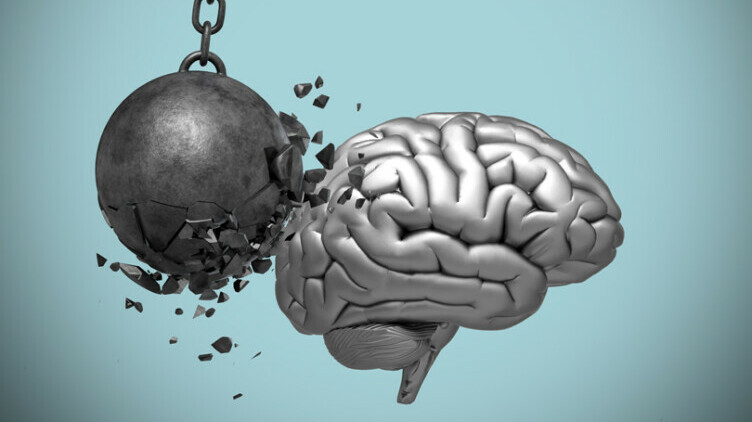Scam Victim Stress
The Psychological, Cerebral, and Physiological Effects
Authors:
• Vianey Gonzalez B.Sc(Psych) – Psychologist, Certified Deception Professional, Psychology Advisory Panel & Director of the Society of Citizens Against Relationship Scams Inc.
• Tim McGuinness, Ph.D. – Anthropologist, Scientist, Director of the Society of Citizens Against Relationship Scams Inc.
Article Abstract
Falling victim to a scam isn’t just about the money. It leaves lasting scars on the mind, body, and emotions, triggering a web of stress that can persist for months or even years. This article explores the complex effects of scam-induced stress and offers pathways to recovery.
Victims first grapple with the emotional fallout: shock, disbelief, and a cocktail of intense feelings like anger, shame, and anxiety. This turmoil then manifests in cognitive issues like memory fog and decision paralysis, as stress takes its toll on the brain. Physically, headaches, muscle tension, and even cardiovascular problems arise from the constant fight-or-flight response. For those with pre-existing conditions like fibromyalgia, the stress can be especially brutal, amplifying symptoms and pain.
Healing from this trauma demands a multifaceted approach. Professional help and support groups offer safe spaces to process emotions and rebuild trust. Prioritizing self-care—healthy sleep, exercise, and relaxation techniques—helps manage stress and regulate the body’s response. Finally, reframing the narrative, focusing on self-compassion, and reasserting control are crucial steps towards regaining inner harmony and emerging stronger from this ordeal.
Scam victim stress is a real and complex issue, but resources and support are available. By understanding its diverse effects and embracing evidence-based strategies, victims can reclaim their well-being and move forward with resilience.
The Lingering Effects of Scam Victimization Stress on the Mind, Brain, and Body! Beyond the Empty Wallet
Becoming a scam victim isn’t just about financial loss; it’s an incredibly stressful and traumatic event that triggers a complex cascade of mental, cerebral, and physiological effects that can linger long after the money’s gone and the end of the deception.
The aftermath of a well-orchestrated scam can leave its mark on the scam victim’s emotional well-being, cognitive function, and even physical health for months or even years, especially if the scam victim does not seek professional support and care.
In our SCARS articles (on ScamsNOW.com and RomanceScamsNOW.com) we place significant emphasis on helping scam victims to better understand the psychological impact of these crimes. However, very often the impacts are not just emotional and psychological but also physical. The impact of stress is a perfect example of this.
Unveiling the Mental and Physiological Toll on Scam Victims Caused by Stress
Being prey to a scam extends far beyond the financial loss; it inflicts a profound emotional and physiological toll that often goes unacknowledged. The aftermath of being deceived, manipulated, and defrauded sets off a cascade of stress responses that can endure long after the scam itself. Unfortunately, a majority of scam victims fail to understand the significance of these effects and never seek the help they need.
The severity of these effects varies depending on the individual and the nature of the scam. Older adults and those with pre-existing mental health conditions are often more vulnerable and more severely impacted. The financial ramifications, especially in cases of major losses, can exacerbate the stress and lead to long-term economic hardship.
1. Stress – Emotional Turmoil and Mental Strain
Discovering one has been scammed triggers an immediate shock. Victims grapple with disbelief, often questioning their own judgment and feeling a profound sense of betrayal. It shatters the trust they held, not only in the scammers but also in themselves.
The aftermath of a scam prompts a rollercoaster of emotions. From anger and frustration to embarrassment and shame, victims endure a range of intense feelings. They may experience helplessness, feeling as though their control has been stripped away, leading to anxiety and depression.
- Shock and Disbelief: The initial realization of being deceived plunges the victim into a state of shock. The world feels surreal, their judgment questioned, and trust shattered. This disbelief can linger, making it difficult to accept the reality of the situation. IN the early days this is cause by hormones and neurotransmitters, but after these fade away the stresses begin their full impact.
- Anger and Frustration: As the shock wears off, rage can bubble up. Scam Victims blame themself, the scammer, and perhaps even those who “should have known better.” Frustration with the injustice of it all festers, leaving the victim feeling powerless and vulnerable.
- Shame and Guilt: The pervasive feeling of being foolish and gullible can be crippling. Shame whispers that the victim deserves this, that the victim is somehow responsible for the loss. This self-blame fuels a vicious cycle of guilt, further deepening the emotional wounds enhancing the stress they feel.
- Anxiety and Fear: The fear of both the current and the potential for future scams becomes a constant companion. Every interaction carries the potential for deception, making the victim hypervigilant and distrustful. Sleep becomes riddled with memories, in not actual nightmares, and even everyday activities feel fraught with danger.
- Depression and Isolation: The weight of emotional turmoil can pull the victim into a dark well of depression. the victim loses interest in activities the victim once enjoyed, withdrawing from loved ones, and feeling utterly alone in the victim post-scam struggle.
2. Stress – Mental and Emotional Scars and Persistent Stress and Anxiety
The initial shock of realizing the victim has been scammed gives way to a wave of emotions: disbelief, shame, and fear (which can turn into anger.) These feelings can intensify into anxiety and depression, leading to sleep disturbances, withdrawal from loved ones, and a constant nagging sense of vulnerability. The betrayal of trust, whether from seemingly well-meaning acquaintances or anonymous online predators, can shatter one’s confidence in their own judgment and the world around them.
The trauma of being scammed instigates persistent stress and anxiety in scam victims that can be hard to deal with. Victims may constantly worry about their financial security, fear further scams, or feel overwhelmed by the breach of privacy and loss of control over personal information.
Stress and the Scam Victim’s Mental Well-Being
- Cognitive fog: Concentration fades, replaced by a persistent brain fog. Remembering details becomes a chore, and making decisions feels overwhelming. The stress takes a toll on the victim’s cognitive abilities, hindering the victim’s ability to think and function effectively.
- Tunnel vision: The trauma can narrow the victim’s focus, making it difficult to see the bigger picture. The victim become fixated on the scam, ruminating on the details and replaying the events in the victim’s mind, unable to move forward.
- Loss of control: The feeling of being manipulated and robbed of the victim’s own agency can be devastating. the victim may experience a sense of powerlessness and hopelessness, leading to decreased motivation and a negative outlook on life, which in some cases can lead to suicide.
The emotional and mental wounds of a scam can heal, but trauma remains unless the victim learns to manage it. With patience, support, and self-care, the victim can untangle the web of turmoil and strain, reclaim their control, and emerge stronger from the experience.
3. Stress – Cognitive Impact
There are several significant cognitive effects from the stress and trauma that these crimes cause.
a. Cognitive Fog
The psychological stress wreaks havoc on cognitive function. Concentration and memory falter, making everyday tasks frustratingly difficult. Decision-making capabilities become clouded, leading to self-doubt and hesitation. In some cases, victims can even experience post-traumatic stress disorder (PTSD) symptoms (or worse,) including flashbacks, traumatic memories, and nightmares related to the scam.
The aftermath of a scam isn’t just an emotional rollercoaster; it can also leave the victim’s mind feeling like it’s wading through a thick fog (we call this ‘Scam Fog’.) Persistent stress, a constant companion for scam victims, wreaks havoc on the brain’s cognitive functions, leaving a trail of impaired memory, clouded judgment, and decision paralysis.
- Obscuring Memory: The hippocampus, the brain’s memory hub, takes a beating from chronic stress. Recalling details of the scam itself becomes a frustrating exercise, with dates, names, and events blurring together. Everyday memories can also suffer, turning into a hazy landscape of forgotten appointments and misplaced belongings.
- Attention Deficit: Focusing on anything but the scam becomes a very difficult task. Tasks that were once routine now demand immense effort, as intrusive thoughts and anxieties steal the victim’s attention. Learning new things feels like climbing a mountain, with information slipping through the victim’s grasp like sand through the victim’s fingers.
- Tunnel Vision: The trauma of the scam can shrink the victim’s mental field of perception, narrowing the victim’s focus to just the details of the experience. The bigger picture fades away, making it difficult to see other perspectives or consider alternative solutions. This tunnel vision can trap the victim in a cycle of rumination, reliving the scam and replaying decisions in the victim’s mind, hindering any real progress towards healing and recovery.
b. Breaking Free from the Fog
The good news is that the brain is incredibly resilient and can begin to heal even after experiencing the cognitive distortions of scam-induced stress. Here are some ways to navigate the fog and find the way back to clarity:
- Seek Professional Help: A therapist can provide tools and strategies to manage stress, address intrusive thoughts, and restore cognitive function.
- Mindfulness and Meditation: Cultivating present-moment awareness (mindfulness) can help scam victims break free from the cycle of rumination and allow the victim to focus on the task at hand.
- Regular Exercise: Physical activity releases endorphins, natural mood boosters that can combat stress and improve cognitive function.
- Sleep Hygiene Practices: Prioritizing quality sleep helps strengthen the brain and clears away the mental clutter accumulated during the day.
- Cognitive Retraining: Engaging in memory-boosting activities and practicing decision-making exercises can gradually rebuild the victim’s cognitive skills.
Regaining cognitive clarity after a scam takes time and patience. Victims need to be kind to themselves, celebrate small victories, and trust that with dedicated effort, the fog will lift, and the victim’s mind will regain its sharpness. Victims are not alone in this journey, and there are resources available to help the victim find the way back to clear thinking and confident decision-making.
c. Cognitive Dissonance
Victims often grapple with conflicting thoughts, trying to reconcile their beliefs with the reality of being scammed. This cognitive dissonance can lead to confusion and a lack of clarity about what to do next.
The stress of a scam often triggers this jarring internal conflict known as cognitive dissonance. This psychological phenomenon arises when two held beliefs or realities clash, creating a state of mental discomfort and tension. In the aftermath of a scam, almost every victim grapples with reconciling the image of themselves as a savvy individual with the harsh reality of being deceived.
- Shattered Self-Image: Scam victims often believe they are rational and cautious individuals, making the experience of being manipulated and deceived a direct contradiction to their self-perception. This dissonance manifests as feelings of shame, self-doubt, and confusion. “How could I have let this happen?” becomes a haunting refrain, chipping away at their sense of trust and competence.
- The Blame Game and Its Dissonance: The need to make sense of the situation can lead to internal blame wars. Victims might berate themselves for being gullible, fueling self-recrimination and guilt. Conversely, they might project blame onto the scammer, fueling anger and resentment, but this too creates dissonance, as it leaves them clinging to the belief that they’re the wronged party in a situation where their own groomed and manipulated judgment played a role.
- The Paralyzing Grip of Doubt: Trust in their own decision-making becomes a casualty of the scam. Everyday choices, from picking groceries to navigating social interactions, now carry the weight of potential deception. This distrust manifests as hesitation, indecisiveness, and a constant second-guessing of their own instincts, further amplifying the discord within.
- Living in a Dissonant World: The victim’s perception of the world around them can also shift after a scam. The sense of safety and security can be shattered, replaced by a persistent wariness and suspicion which manifests as stress. Every interaction becomes a potential threat, further deepening the disconnect between their desired sense of normalcy and the harsh reality of vulnerability.
d. Breaking Free from the Discordant Chorus
Healing from the cognitive dissonance of a scam requires acknowledging the internal conflict and actively seeking harmony.
Cognitive dissonance after a scam is a normal and understandable reaction. Victims need to be gentle with themselves, seek support, and actively work towards reconciling their inner world with the external reality. With time and effort, the discordant echoes will fade, replaced by a renewed sense of confidence and clarity.
e. Impact on Decision Making under Stress
The experience of being scammed can profoundly influence decision-making abilities. Victims often become overly cautious or, conversely, more susceptible to new scams, impacting their ability to make sound judgments.
- Clouding Decision Making: The prefrontal cortex, responsible for executive functions like planning, problem-solving, and decision-making, becomes sluggish under the weight of stress. Making even basic choices feels like navigating a minefield, leading to procrastination and missed opportunities. The constant worry about the current and future scams can further cloud judgment, making it difficult to trust their own instincts.
- Decision Paralysis: The fear of making another mistake can paralyze them with indecision. Even simple choices feel risky, leading to procrastination and missed opportunities.
4. Stress – Persistent Stress and the Brain
a. Persistent Stress
The persistent stress endured by scam victims leaves a significant mark on their brains, affecting different regions and functions in complex ways. Here’s a closer look at how this invisible trauma reshapes the landscape of the mind:
- Weakening the Prefrontal Cortex: This crucial area, responsible for executive functions like decision-making, planning, and emotional regulation, takes a major hit during chronic stress. Victims might experience trouble focusing, remembering details, and controlling impulses, making everyday tasks feel overwhelming. This executive control center struggles under the stress overload. Decision-making, planning, and emotional regulation become sluggish, leading to confusion, forgetfulness, and difficulty focusing.
- Hypervigilance and the Amygdala: The amygdala, the brain’s alarm center, goes into overdrive in response to persistent threat (persistent stress.) Scam victims become hypervigilant to potential judgment, threats, and scams, scanning every interaction for signs of deception. This can lead to constant anxiety and distrust even in safe situations. This fear center becomes hyperactive, constantly scanning for potential threats and even everyday interactions trigger the fight-or-flight response, keeping the body in a state of heightened arousal and tension.
- Memory and the Hippocampus: The hippocampus, responsible for memory formation and retrieval, is often negatively affected by chronic stress. Victims might struggle to recall details of the scam itself or find their overall memory foggy and unreliable. Chronic stress physically shrinks the hippocampus, the memory hub. Recalling details, especially of the scam itself, becomes challenging, adding to the feeling of disorientation and self-doubt.
- Inflammation and the Blood-Brain Barrier: Persistent stress triggers a cascade of inflammatory responses in the body, impacting the blood-brain barrier. This protective barrier becomes more permeable, allowing inflammatory molecules to access brain tissue and potentially damaging neurons and disrupting communication between brain regions. Stress triggers a low-grade inflammatory response, damaging neurons and disrupting communication between brain regions that are vital form normal cognition and emotional regulation, as well as memories. This can lead to problems with mood, sleep, overall cognitive function, and memory recall.
- Long-Term Effects: These initial changes can lead to long-term consequences. Chronic stress can shrink the hippocampus, contributing to memory problems and even increasing the risk of dementia. The constant vigilance can exhaust the body’s stress response system, leaving victims vulnerable to physical health problems like heart disease, diabetes, viruses. and even bacteria.
- Hope and Healing: It’s important to remember that the brain possesses remarkable plasticity, the ability to change and adapt throughout life. With proper care and support, the brain can begin to heal from the impact of scam-induced trauma and stress. Cognitive-behavioral therapy, mindfulness practices, and stress management techniques can all help rebuild the resilience and function of the prefrontal cortex, regulate the amygdala’s activity, and protect the hippocampus.
b. The Stress Ripple Effect of Change on the Brain
These initial changes set off a chain reaction, impacting other vital aspects of brain health:
- Neurotransmitters in Imbalance: Stress hormones like cortisol flood the system, disrupting the delicate balance of brain chemicals crucial for mood, motivation, and learning.
- The Blood-Brain Barrier: Chronic stress weakens the protective barrier between the bloodstream and the brain, allowing inflammatory molecules to seep in and further damage neurons.
- The Sleep Cycle: Stress throws the sleep-wake cycle into disarray, leading to insomnia, intrusive memories, and nightmares, further hindering brain repair and cognitive function.
c. The Impact
The impact of persistent stress on the brains of scam victims is undeniable. However, understanding these changes is the first step towards recovery.
The trauma of a scam doesn’t just leave emotional scars; it can also etch its mark on the delicate landscape of the brain itself. Persistent stress, a constant companion for victims, unleashes a cascade of biochemical and structural changes, impacting different regions in subtle yet profound ways.
Healing from the impact of scam-induced stress on the brain takes time and patience. Scam victims need to be kind to themselves, celebrate small victories, and trust in the brain’s remarkable ability to heal and rebuild. With dedicated effort and support, they can reclaim their cognitive well-being and emerge from this experience stronger and more resilient.
5. Stress – Physiological Impact
a. Physical Symptoms
The toll of the scam is not merely mental; it manifests itself physically too. Victims report headaches, muscle tension, gastrointestinal issues, and even cardiovascular problems as a result of their heightened stress levels.
The emotional and mental turmoil after the scam isn’t merely confined to the mind; it unleashes a cascade of physiological effects that ripple through the body, leaving it in a state of chronic disequilibrium. Persistent stress, the unseen puppeteer in this drama, orchestrates a symphony of bodily disruptions, impacting health and well-being in profound ways.
b. Physiological Reactions
The fight-or-flight response triggered by the emotional distress manifests in physical ways. Stress hormones like cortisol surge, leading to headaches, muscle tension, and digestive issues. The heart rate and blood pressure increase, putting strain on the cardiovascular system. In extreme cases, panic attacks and even heart attacks can occur.
c. Elevated Stress Hormones
The stress and trauma post-scam can elevate cortisol levels, leading to a constant state of fight-or-flight response. This chronic stress affects sleep patterns, appetite, and overall well-being.
d. The Fight-or-Flight Physical Strain
- Cardiovascular Effects: The heart bears the brunt of the stress response, pounding in overdrive as cortisol and adrenaline surge. Blood pressure soars, putting strain on the arteries and increasing the risk of heart disease and stroke.
- Digestive Effects: The gut becomes a battleground, churning with anxiety and frustration. Acid reflux, stomach cramps, and irritable bowel syndrome can become unwelcome companions, disrupting digestion and nutrient absorption.
- Muscular Effects: Tension knots erupt in the shoulders and neck, a physical manifestation of the emotional burden. Headaches become a frequent visitor, and aches and pains plague the body, leading to fatigue and a decreased sense of well-being.
- Immune System: The relentless stress weakens the body’s defenses, making it more susceptible to infections and illness. The increased inflammation further harms the body’s ability to fight off pathogens.
- Sleep: Rest becomes a distant dream. The mind, buzzing with worry and replaying the traumatic experience, resists slumber. Insomnia takes hold, robbing the body of its essential repair time and further amplifying the physiological distress.
e. Disrupted Body Harmony
These initial disruptions trigger a domino effect within the body, causing further imbalances:
- Hormonal Imbalance: Stress disrupts the delicate balance of hormones. Sex hormones like testosterone and estrogen fluctuate, impacting mood, sleep, and libido. The body’s natural painkillers, endorphins, become scarce, leaving victims vulnerable to pain and discomfort.
- Metabolic Effects: Chronic stress wreaks havoc on metabolism. Blood sugar levels become erratic, and weight gain or loss can occur. The body struggles to regulate appetite and energy levels, further contributing to the feeling of being out of control.
- The Gut-Brain Axis Effects: The stress response impacts the gut microbiome, which in turn can send signals back to the brain, amplifying anxiety and depression. This intricate communication channel becomes a vicious cycle, perpetuating the physiological and emotional distress.
f. Healing
Healing from the physiological effects of scam-induced stress requires a holistic approach, addressing both the mind and the body:
- Mindfulness and Relaxation Techniques: These practices activate the parasympathetic nervous system, countering the fight-or-flight response and promoting relaxation. Yoga, meditation, and deep breathing can help regulate heart rate, calm the mind, and ease physical tension.
- Physical Activity: Exercise is a powerful stress reliever. Regular movement releases endorphins, improves sleep, and boosts the immune system. Finding activities the victim enjoys, from brisk walks to dancing, can be a fun and effective way to combat the physiological effects of stress.
- Healthy Diet and Sleep Habits: Nourishing the victim’s body with a balanced diet and prioritizing quality sleep provide the building blocks for resilience. Avoiding caffeine and alcohol before bed, establishing a regular sleep schedule, and creating a relaxing bedtime routine can promote restful sleep.
The physiological effects of scam-induced stress are real and deserve attention. Scam Victims need to be patient with themselves, listen to the victim’s body’s signals, and embrace a holistic approach to healing. With time, dedicated effort, and the right support, any victim can rebuild their inner balance and emerge from this experience stronger and more resilient, both physically and emotionally.
6. Psychological Stress and the Potential Exacerbation of Fibromyalgia in Scam Victims
The experience of becoming a scam victim can trigger a cascade of negative consequences, both emotional and physical. For individuals living with existing chronic conditions like fibromyalgia, the added burden of persistent stress can pose a significant challenge, potentially exacerbating symptoms and impacting overall well-being.
Fibromyalgia is a complex condition characterized by widespread musculoskeletal pain, fatigue, sleep disturbances, and mood changes. While the exact cause remains unknown, it’s well-established that stress plays a significant role in the management and potential worsening of symptoms.
a. Scam-Induced Stress can Impact Fibromyalgia Sufferers
- Heightened Pain Sensitivity: Chronic stress is known to amplify pain perception through its influence on the central nervous system. The emotional turmoil and heightened vigilance associated with being scammed can further sensitize the nervous system, leading to increased pain intensity and flare-ups.
- Disrupted Sleep and Fatigue: Scam victims often grapple with insomnia and sleep disturbances due to anxiety and rumination. This lack of restorative sleep can exacerbate fatigue, a hallmark symptom of fibromyalgia, reducing energy levels and impacting daily functioning.
- Emotional Toll and Mood Fluctuations: The emotional fallout from a scam, including feelings of fear, shame, and depression, can significantly impact mental well-being. These negative emotions can negatively influence the stress response, creating a vicious cycle that further worsens fibromyalgia symptoms.
- Weakened Immune System: Persistent stress can suppress the immune system’s effectiveness, making individuals more susceptible to infections and illness. This can be particularly concerning for fibromyalgia patients, who may already experience increased vulnerability to certain health complications.
b. Navigating the Stress-Fibromyalgia Connection
Individuals with fibromyalgia and a history of being scammed can take proactive steps to mitigate the potential impact of stress on their condition:
- Seek Professional Help: Therapists can provide valuable tools and strategies for managing stress, regulating emotions, and fostering resilience. Cognitive-behavioral therapy (CBT) is often effective in managing chronic pain conditions and improving coping mechanisms.
- Prioritize Self-Care: Engaging in activities that promote relaxation and well-being is crucial. Regular exercise, mindfulness practices, and good sleep hygiene can all contribute to managing stress and reducing fibromyalgia symptoms.
- Build a Support Network: Connecting with other fibromyalgia patients or scam victims can provide invaluable emotional support and understanding. Sharing experiences and coping strategies can strengthen the victim’s resilience and improve the victim’s sense of well-being.
- Communicate Openly with Healthcare Providers: Victims should inform their doctor about the experience of being scammed and how it may be impacting their health and fibromyalgia symptoms. Open communication allows for personalized treatment adjustments and ensures optimal management of both conditions.
Experiencing fibromyalgia and falling victim to a scam can be a challenging combination. By understanding the potential connection between stress and symptom exacerbation, prioritizing self-care, and seeking professional support, individuals can learn to cope effectively and navigate this dual challenge with resilience and strength.
7. Increasing Stress in Scam Victims
There are many potentially harmful effects of victims oversaturating themselves with scammer news and even participating in vigilantism.
While staying informed about scams can be valuable, for victims, continual exposure to scammer news and vigilante content can have unintended consequences, potentially exacerbating the negative psychological and emotional effects of their experience. Here’s how:
- Retraumatization: Immersing themselves in narratives of other victims’ experiences, graphic details of scams, and vigilante activities can re-trigger the initial trauma. The emotional distress, fear, anger, and sense of violation the victim felt resurface, hindering the healing process.
- Heightened Vigilance and Anxiety: Constant bombardment with scam details can instill excessive vigilance, making the victim perceive threats everywhere. This hyperawareness can lead to anxiety, paranoia, and difficulty trusting others, impacting daily life and social interactions.
- Obsessive Rumination: Dwelling on the specifics of the victim’s own scam and fixating on how things could have been different (‘what ifs’) can fuel unhealthy rumination. The mental replay of the event coupled with exposure to similar stories can prevent the victim from moving forward and accepting what happened.
- Difficulty Detaching and Healing: Obsessively following vigilante content, while seemingly empowering, can create a sense of needing to “see” justice served or conversely a sense that there is no justice at all. This external focus can delay internal grief processing and healing, hindering the victim’s ability to move on from the emotional burden, and even seek the help they need to recover.
While awareness is important, protecting the victim’s mental well-being should be paramount. Here are some strategies for navigating the anti-scam information landscape safely:
- Limit Exposure: Set specific times and durations for consuming scam news and vigilante content – if at all. Consider taking breaks or avoiding triggers altogether. SCARS recommends avoiding scammer news altogether,
- Focus on Self-Care: Prioritize activities that promote relaxation and emotional well-being, such as meditation, exercise, or spending time with loved ones.
- Seek Professional Support: Therapists can equip the victim with tools to manage emotional distress, process trauma and grief, and develop healthy coping mechanisms.
- Focus on Personal Empowerment: Instead of obsessing over vigilante efforts, focus on regaining control in the victim’s own life. Learn about scam prevention strategies, update the victim’s security measures, and rebuild the victim’s sense of trust in themself and others.
Healing takes time and patience, and prioritizing well-being by setting boundaries around media consumption, focusing on self-care, and seeking professional support when needed are critical. Each victim should let themself move forward from the experience, learning and growing, rather than getting caught in a cycle of reliving the trauma.
By adopting a mindful approach to information consumption and focusing on their own healing journey, the victim can emerge from the experience stronger and more resilient.
8. Stress – Coping Mechanisms and Recovery
a. Professional Assistance
Engaging with mental health professionals, such as trauma therapists or counselors, can offer tailored strategies to cope with the trauma. These professionals can guide victims in managing stress, anxiety, and rebuilding trust.
Seeking professional help from therapists and counselors specializing in trauma recovery is crucial for coping with the emotional and mental repercussions. Therapy can equip the victim with tools to manage stress, address underlying trauma, and develop healthy coping mechanisms. A therapist can provide personalized guidance and support on the victim’s journey to healing.
b. Seeking Support
Recovery after a scam is a multifaceted journey. Joining a SCARS support group with other scam victims can provide a sense of community and validation. Seeking support from friends, family, and support groups is crucial. Talking about the experience helps victims process their emotions and gain perspective. Open communication with loved ones can help rebuild trust and provide emotional support.
c. Self-Care Practices
Beyond emotional recovery, prioritizing self-care becomes essential. Maintaining a healthy sleep schedule, engaging in regular physical activity, and practicing relaxation techniques like meditation can help manage stress and regulate the body’s response to anxiety.
The good news is that the brain possesses remarkable plasticity, the ability to adapt and rebuild. With dedicated effort and support, scam victims can begin to heal the stress-induced damage:
- Self-Compassion: Blaming oneself only feeds the dissonance. Practicing self-compassion and understanding that everyone makes mistakes allows for gentler self-reflection and acceptance.
- Reframing the Narrative: Instead of solely focusing on the negative, acknowledge the learning opportunity. Viewing the experience as a chance to build resilience and improve critical thinking skills can shift the narrative and reduce dissonance.
- Open Communication: Sharing the experience with trusted friends, family, or a therapist can provide invaluable support and validation. Talking through the dissonance can help process the emotions and rebuild trust in oneself and others.
- Regaining Control: Engaging in activities that empower the victim and build confidence can help rebuild the victim’s sense of agency. Setting small goals, making mindful decisions, and practicing self-care are all steps towards restoring harmony within.
- Mindfulness and Meditation: These practices quiet the amygdala and activate the prefrontal cortex, strengthening stress resilience and fostering emotional regulation.
- Cognitive Rehabilitation: Activities that stimulate memory, attention, and decision-making can help rebuild weakened neural pathways and restore cognitive function.
- Physical Exercise: Regular physical activity releases endorphins, natural mood boosters that combat stress and promote neuroplasticity.
- Healthy Sleep Habits: Prioritizing sleep hygiene allows the brain to repair itself and restore cognitive function.
- Professional Support: Therapy can provide invaluable guidance in managing stress, processing trauma, and developing coping mechanisms. Joining a SCARS support group can be also valuable.
Implementing self-care practices, such as mindfulness, meditation, regular exercise, and a balanced diet, aids in mitigating the effects of stress and fosters resilience.
d. Empowerment through Education
Preventing future victimization is equally important. Educating oneself about current scams and adopting a healthy dose of skepticism towards unsolicited offers can go a long way. Utilizing secure online practices, behaviors, and being wary of personal information sharing can further minimize vulnerability.
Understanding the psychology of scams, learning about common tactics used by scammers, and acquiring knowledge of online safety measures empowers victims to regain a sense of control and prevent future victimization.
9. Understanding Stress
Healing from the emotional and mental stress of a scam takes time and dedicated, committed effort. Here are some ways to begin rebuilding the victim’s well-being:
- Seek Professional Help: Therapists trained in trauma recovery can provide invaluable support, helping the victim process the victim’s emotions, manage stress, and rebuild the victim’s sense of self-worth.
- Connect with Others: Sharing the victim’s experience with other scam victims in SCARS support groups can create a sense of community and validation. Knowing that they are not alone can be incredibly therapeutic.
- Practice Self-Care: Prioritize activities that nourish the victim’s mind, body, and soul. Regular exercise, mindfulness practices, and healthy sleep habits can help regulate the victim’s emotions and build resilience.
- Focus on Forgiveness: Blaming themselves or the scammer only prolongs the suffering. Practice self-compassion and forgiveness, recognizing that everyone makes mistakes, and they can learn from this experience.
- Rebuild Trust: Gradually re-engage with the world, starting with small interactions. Seek out safe, trustworthy relationships can help rebuild the victim’s connections with others.
The impact of a scam stretches far beyond the monetary loss; it deeply affects the mental, emotional, and physical well-being of scam victims. Recognizing and acknowledging these effects is the first step toward healing. It’s essential to break the silence surrounding the aftermath of scams, fostering a supportive environment where victims can seek help, heal, and ultimately reclaim their lives. Recovery is a gradual process, but with the right support and strategies, victims can navigate through the trauma and emerge stronger and more resilient.
The scars of a scam, though invisible, can be deep and lasting but they have to heal first. Recognizing the multi-faceted impact of scam victimization, from the mental and emotional distress to the cognitive and physical toll, is key to obtaining appropriate support and fostering healing. By acknowledging the emotional reality of the aftermath and promoting self-awareness and preventive measures, scam victims can empower themselves to not only recover from scams but also protect themselves from falling prey in the future. Remember, victims are not alone unless they choose to be, and help is available to navigate the path towards healing and rebuild a sense of security and trust.
By getting support, access to healthcare, and effective stress management tools, scam victims empower themselves to heal their minds and rebuild their lives.
Even after a traumatic experience, healing is possible.
More:
- Relationship Scam Victims – Impact On Employment And Jobs – Saving Employment After A Scam (scamsnow.com)
- Reclaiming Your Worth: A Scam Survivor’s Guide to Navigating Your Worthiness After a Scam – 2023 (scamsnow.com)
- Trauma & Nutritional Health – Take Your Vitamins – 2023 (scamsnow.com)
- SCARS 5 Coping Techniques For Traumatized Scam Victims – 2023 (scamsnow.com)
- Fibromyalgia & Psychological Trauma Link – Medical Health Alert – 2023 (scamsnow.com)
- Trauma Recollection/Traumatic Flashbacks And Scam Victim PTSD – Recovery Psychology – 2023 (scamsnow.com)
- Selective Amnesia and Scam Victim Psychological Trauma 2023 (scamsnow.com)
- Toxic Self-Narratives That Feeds Depression in Scam Victims 2023 (scamsnow.com)
- Psychological Triggers/Emotional Triggers – What They Are And How They Work – 2023/2024 (scamsnow.com)
- PTSD And Complex PTSD – The Difference Between Them – 2023 (scamsnow.com)
- PTSD and Complex Grief/Complicated Grief – What Are The Differences? 2023 (scamsnow.com)
SCARS Resources:
- For New Victims of Relationship Scams newvictim.AgainstScams.org
- Subscribe to SCARS Newsletter newsletter.againstscams.org
- Sign up for SCARS professional support & recovery groups, visit support.AgainstScams.org
- Find competent trauma counselors or therapists, visit counseling.AgainstScams.org
- Become a SCARS Member and get free counseling benefits, visit membership.AgainstScams.org
- Report each and every crime, learn how to at reporting.AgainstScams.org
- Learn more about Scams & Scammers at RomanceScamsNOW.com and ScamsNOW.com
- Global Cyber Alliance ACT Cybersecurity Tool Website: Actionable Cybersecurity Tools (ACT) (globalcyberalliance.org)
- Self-Help Books for Scam Victims are at shop.AgainstScams.org
- Donate to SCARS and help us help others at donate.AgainstScams.org
- Worldwide Crisis Hotlines: International Suicide Hotlines – OpenCounseling : OpenCounseling
- Campaign To End Scam Victim Blaming – 2024 (scamsnow.com)
-/ 30 /-
What do you think about this?
Please share your thoughts in a comment below!
More ScamsNOW.com Articles
SCARS LINKS: AgainstScams.org RomanceScamsNOW.com ContraEstafas.org ScammerPhotos.com Anyscam.com ScamsNOW.com
reporting.AgainstScams.org support.AgainstScams.org membership.AgainstScams.org donate.AgainstScams.org shop.AgainstScams.org
youtube.AgainstScams.org linkedin.AgainstScams.org facebook.AgainstScams.org












Thank you for all this information. It is very nice to have it all together here as I needed to remember some thing again to help lessen some stress.